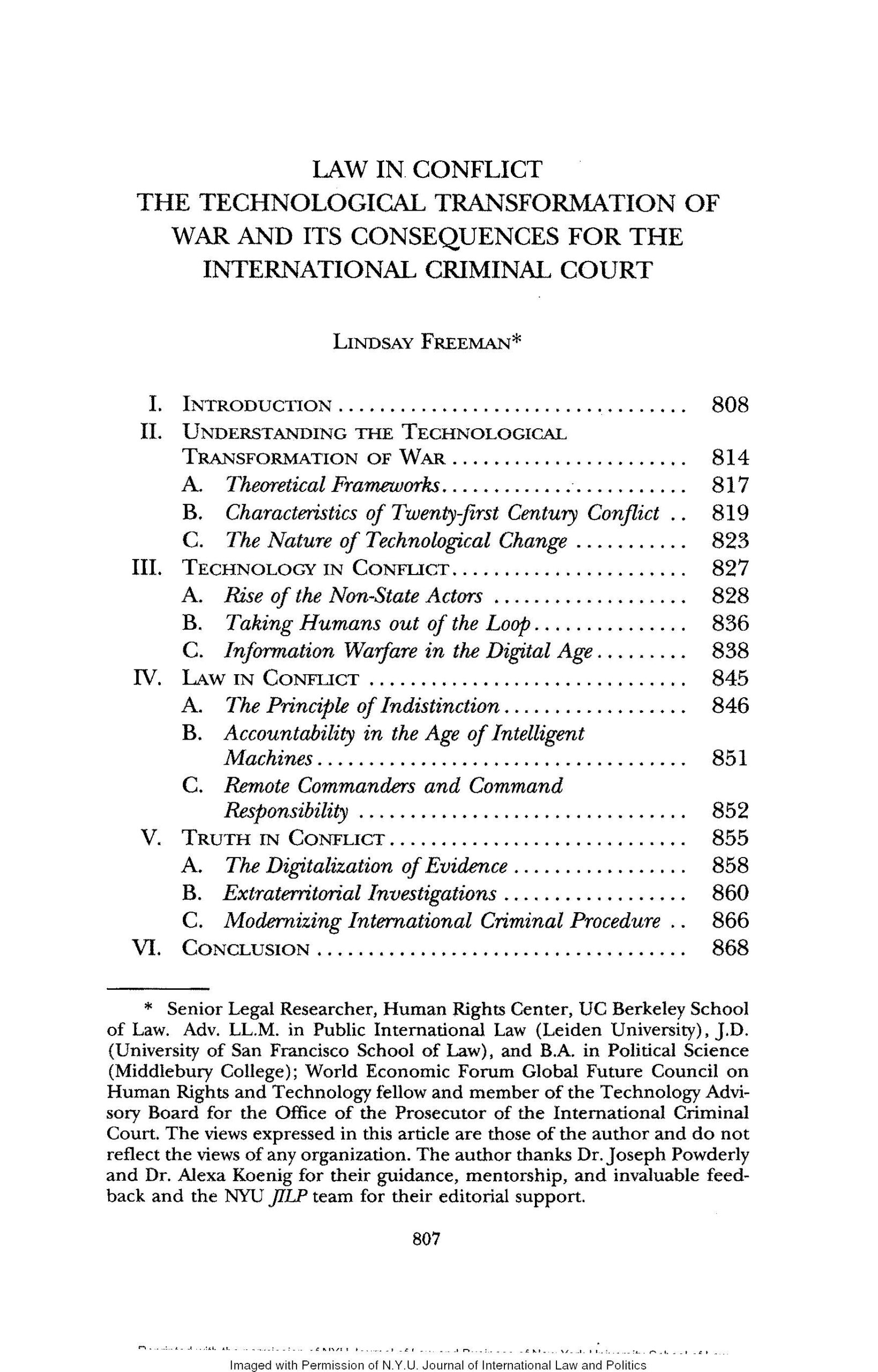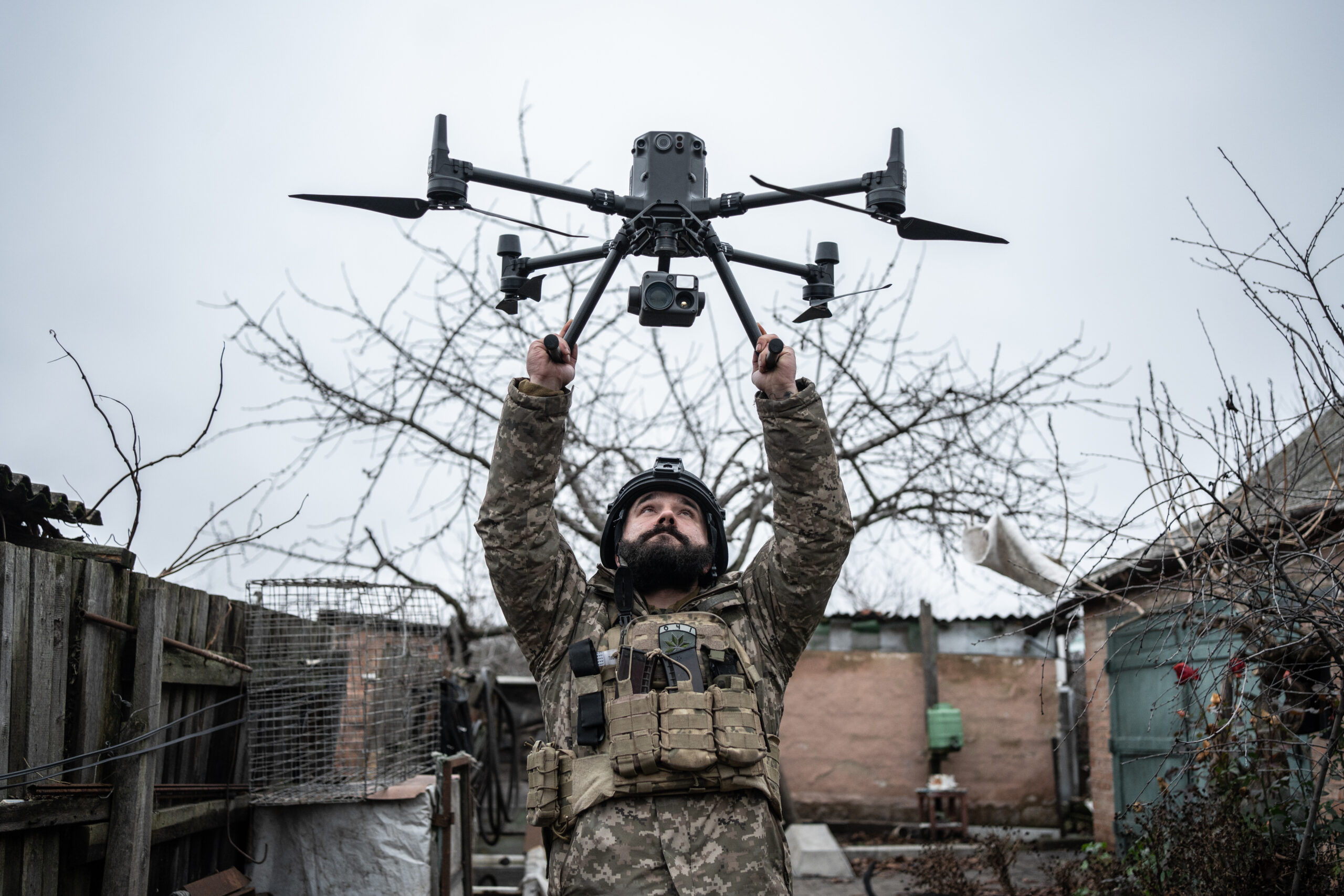Law in Conflict: The Technological Transformation of Warfare and its Consequences for the International Criminal Court
Download PDFSummary
Modern armed conflicts and military strategies have undergone dramatic shifts as a result of new technologies, and the next generation of innovations will have profound consequences for how wars are fought, where they are fought, and who fights them. This, in turn, will inevitably have a pronounced influence on the development of the laws of war and the justice mechanisms mandated with enforcing those laws. Therefore, as new strategies and dynamics of war emerge related to the use of new technologies, war crimes investigators and prosecutors must adapt in order to meet the goals of establishing the truth, protecting the historical record, and holding individuals accountable for grave violations of international law. This article examines the characteristics of contemporary armed conflicts related to the use of new technologies and asks how this technological transformation of warfare will affect the ability of the global community to reach the goals of international justice. First, it examines the development of the use of technology-what technologies are used, how they are used, and what impact they have on armed conflicts and military affairs generally. Second, it identifies the complex legal issues arisingf rom the use of new technologies and advocates for needed revisions to the definitions of crimes and modes of liability. Finally, it looks at the impact of the technological transformation of warfare on the fact-finding process for international criminal investigators and recommends a modified approach to evidence and the rules of procedure. In sum, this article takes a big picture approach to examining a current revolution based on the complex interplay of technology, law, and investigations in armed conflicts, and uses this understanding to chart a new way forward for the International Criminal Court.

